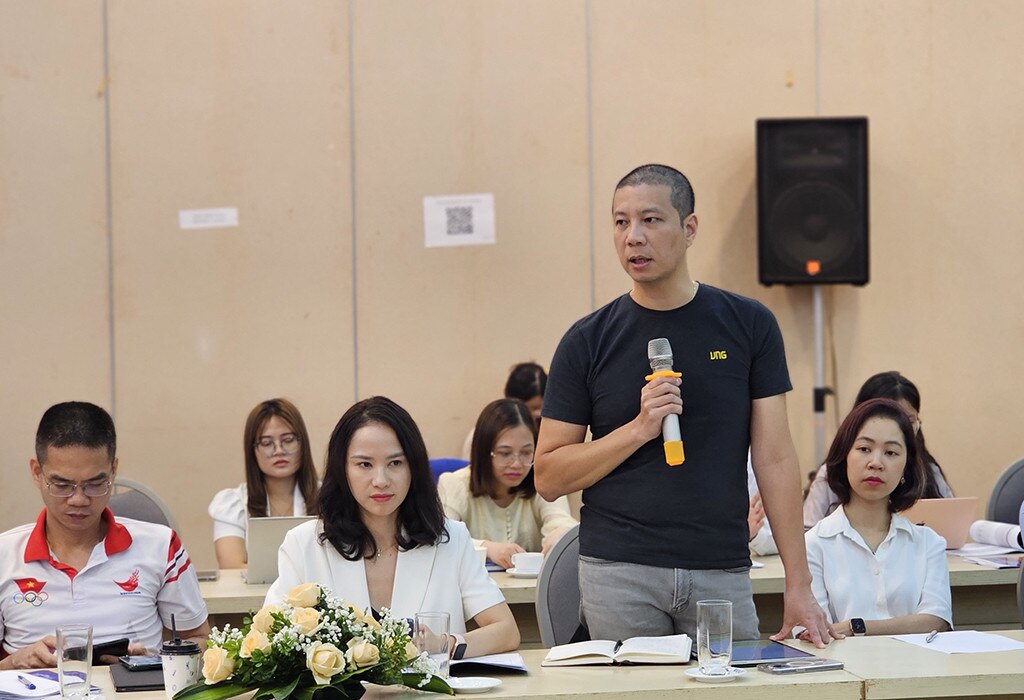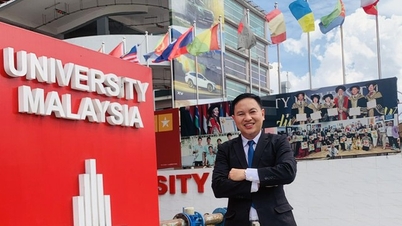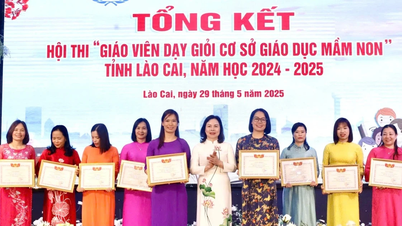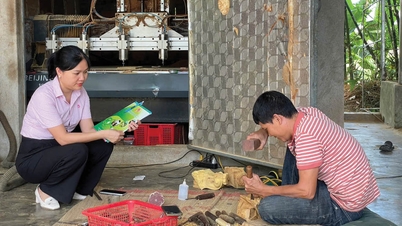Vietnamese game businesses believe that if special consumption tax is added, Vietnamese businesses will completely lose their ability to compete on their "home turf" and the market share will belong to pirated games.
Vietnamese games find it difficult to compete at home
At the Workshop on providing comments and proposals for the development of the Special Consumption Tax Law Project organized by the Vietnam Federation of Commerce and Industry (VCCI) on July 5, Mr. Dau Anh Tuan, Head of the Legal Department of VCCI said: "I met some businesses who said that this law could be related to the survival of the business."
The workshop was attended by businesses and experts but lacked a representative from the Ministry of Finance - the unit that drafted the Law on Special Consumption Tax.
Speaking at the conference, Mr. La Xuan Thang, Director of Online Game Publishing of VNGGames, said that in the world, the gaming industry is a pillar in the digital content industry and digital economy . According to estimates from Newzoo, the total revenue of the gaming industry in 2022 reached 184 billion USD and is expected to reach 194 billion USD in 2023. According to this report, in 2022, there will be about 3.2 billion gamers globally.
The nature of online video games in general is to create content on the Internet environment to serve the entertainment needs of people in society, and therefore should be treated equally like other parts of the entertainment industry, like movies, music...
Mr. La Xuan Thang gave an example, in countries such as the US, Japan, Korea, China, France, Spain and many other countries, online games are not only recognized as an important economic sector, but also identified as a spearhead for exporting culture to the world. And so, these countries have many policies to support and encourage the development of the online game industry. Recently, some other countries such as Singapore, the United Arab Emirates, Jordan, ... have also had many initiatives and policies to attract corporations and game companies to set up headquarters and operate. They do not want to be slow in this industry that is predicted to soon reach the revenue mark of 200 billion USD.

Mr. La Xuan Thang, Director of Online Game Publishing of VNGGames, said that in the world, the gaming industry is a pillar in the digital content industry and digital economy.
“In my personal opinion, everything has two sides. Even movies, music, or more broadly, the Internet, using too much is not good, there is also bad content mixed with creative, positive, healthy content.... But if we look at it in a more positive and trendy way, the gaming industry is an intellectual industry, highly creative, a place to apply the latest and most advanced technologies before putting them into life (blockchain technology, VR virtual reality technology, virtual learning technology, ...), a place to help people relieve stress, is e-sports - a sport recognized by the Olympic Committee", Mr. La Xuan Thang shared.
Mr. Thang continued to analyze that online game production and business enterprises in Vietnam are facing unfair competition from foreign companies. In fact, in Vietnam, online video game business is a conditional business. All games that want to do business must have their content assessed by specialized State management agencies. In addition to ensuring requirements on content factors, online games when put on the market always have a very clear age classification and user warnings before use. Most of the unhealthy and deviant content comes from games that are illegally released in Vietnam. These games are not managed by specialized management agencies and do not pay any taxes to the Vietnamese State.
Currently, Vietnamese enterprises are fulfilling all their obligations to the State and have to compete with foreign enterprises that do not have to fulfill any obligations. This is one of the reasons why only about 15% of registered Vietnamese gaming enterprises are still operating. 85% have stopped or moved their operations abroad to enjoy comprehensive preferential mechanisms from procedures, infrastructure to tax rates.
“If we add special consumption tax, Vietnamese businesses will completely lose their competitiveness in their home market. The market share will belong to illegal and unlicensed products, and the management of content, culture, finance, etc. will become very heavy,” Mr. Thang emphasized.
Vietnamese game businesses have had to sell themselves to foreign businesses.
From the perspective of the representative of the Vietnamese game producers and publishers alliance, Mr. Nguyen Trong Nghia said that the game industry has a lot of potential and is considered by many countries in the world as one of the pillars of the digital economy. Vietnam has a lot of potential to develop the game industry, but it has to face many prejudices and has not really been encouraged to develop. Therefore, domestic enterprises face many difficulties and have limited growth rates.
“For many years, domestic game development businesses have faced extremely fierce competition from global game and technology corporations, and have gradually lost their competitiveness in their own home market. In fact, according to statistics from the Department of Radio, Television and Electronic Information (Ministry of Information and Communications), there are less than 20 Vietnamese game businesses still operating regularly out of a total of more than 200 registered businesses. Besides many Vietnamese businesses leaving the market, many businesses are also gradually selling themselves to foreign companies,” said Mr. Nguyen Trong Nghia.
Mr. Nguyen Trong Nghia cited statistics from Newzoo, in the Vietnamese market in 2022, although the market is potential, the total revenue of domestic enterprises only accounts for about 22%, the rest belongs to foreign enterprises.

Mr. Nguyen Trong Nghia said that the gaming industry has a lot of potential and is considered by many countries in the world as one of the pillars of the digital economy.
“Currently, the business environment of the domestic gaming industry has not received the necessary support, compared to the policies of developing incubation, supporting businesses, and attracting foreign investment of developed countries, or even of countries in the region such as Thailand, Indonesia, and the Philippines. This leads to the situation where many businesses have mainly Vietnamese staff, are successful in Vietnam and foreign markets, but were born in another country, such as Singapore,” said Mr. Nguyen Trong Nghia.
Mr. Nguyen Trong Nghia continued to analyze that currently no country or territory in the world applies special consumption tax to the gaming industry. Some countries apply content control mechanisms or game playing time control mechanisms similar to Vietnam, typically China and Korea, but there is no precedent for tax tools.
With the above analysis, the Game Alliance representing Vietnamese game companies sends the message that although the game market in Vietnam is developing, domestic companies still face many difficulties when competing with foreign companies, and competing with the support policies of countries in the region. Therefore, the Alliance recommends that online games will not be included in the list of subjects subject to special consumption tax.
At this workshop, Mr. Tran Phuong Huy, Director of VTC Intecom said that if special consumption tax is imposed, businesses like VTC will “die” at home. The government can manage online games through electronic identification codes like some countries like China are doing, instead of using tax policies targeting online game businesses. Mr. Tran Phuong Huy also proposed not to impose special consumption tax.

Mr. Tran Phuong Huy, Director of VTC Intecom, said that if special consumption tax is imposed, businesses like VTC will "die" at home.
Agreeing with the above viewpoint, Ms. Nguyen Thi Dung, representative of Soha Game, continued to share that the special consumption tax law is to protect children and online game users for health reasons. This goal is correct, but the solution does not solve the problem that this law aims at. If taxes are imposed on domestic enterprises, on young enterprises, how can these enterprises survive. Besides, domestic enterprises are having to compete with foreign game enterprises, pirated games.
Thus, if the special consumption tax is applied, the game market will be in the hands of foreigners and pirated games. Meanwhile, neighboring countries such as Singapore have tax incentives for game businesses. Ms. Nguyen Thi Dung asked the question: "The Vietnamese game industry has had a Nguyen Ha Dong, but where did Nguyen Ha Dong go after that even though he still makes games? Should game makers and game businesses go abroad to develop?"

Ms. Nguyen Thi Dung, representative of Soha Game, shared that if special consumption tax is applied, the game market will be in the hands of foreigners and pirated games.
At this workshop, Mr. Nguyen Viet Long, representative of the Ministry of Labor, War Invalids and Social Affairs, said that the basis given by the Ministry of Finance was not convincing enough about the social impact of games to impose special consumption tax. The gaming industry is creating many jobs and promoting the development of the digital economy. The representative of the Ministry of Labor, War Invalids and Social Affairs also recommended that the Ministry of Finance reconsider imposing taxes on online games.
vietnamnet.vn



![[Photo] Vietnamese and Hungarian leaders attend the opening of the exhibition by photographer Bozoky Dezso](https://vphoto.vietnam.vn/thumb/1200x675/vietnam/resource/IMAGE/2025/5/29/94d8ceca5db14af3bf31285551ae4bb3)



![[Photo] Prime Minister Pham Minh Chinh meets with Hungarian President Sulyok Tamas](https://vphoto.vietnam.vn/thumb/1200x675/vietnam/resource/IMAGE/2025/5/29/dbcaa73e92ea4448a03fe1d0de6d68e8)





















![[Photo] Prime Minister Pham Minh Chinh receives a bipartisan delegation of US House of Representatives](https://vphoto.vietnam.vn/thumb/1200x675/vietnam/resource/IMAGE/2025/5/28/468e61546b664d3f98dc75f6a3c2c880)


























































Comment (0)